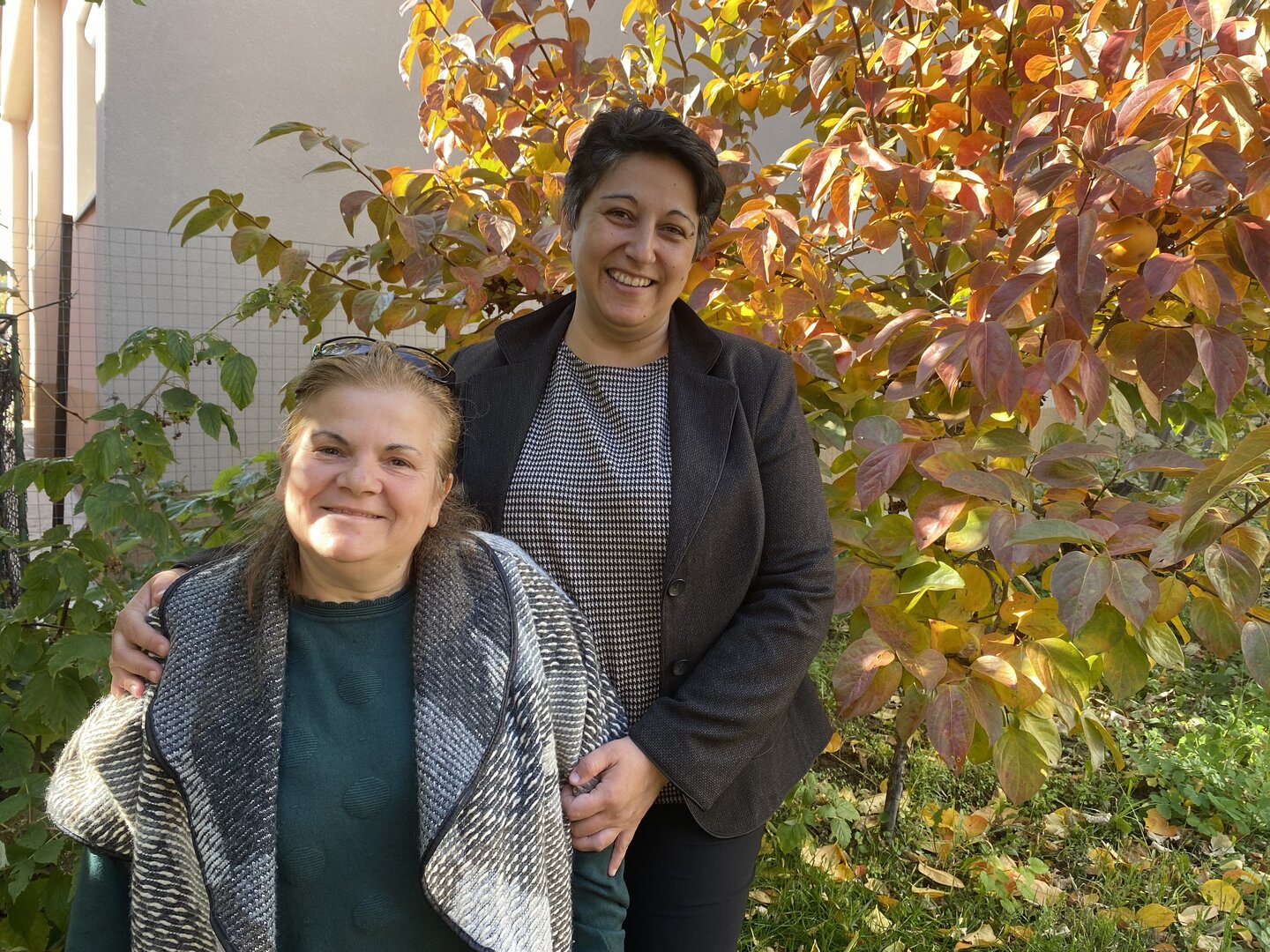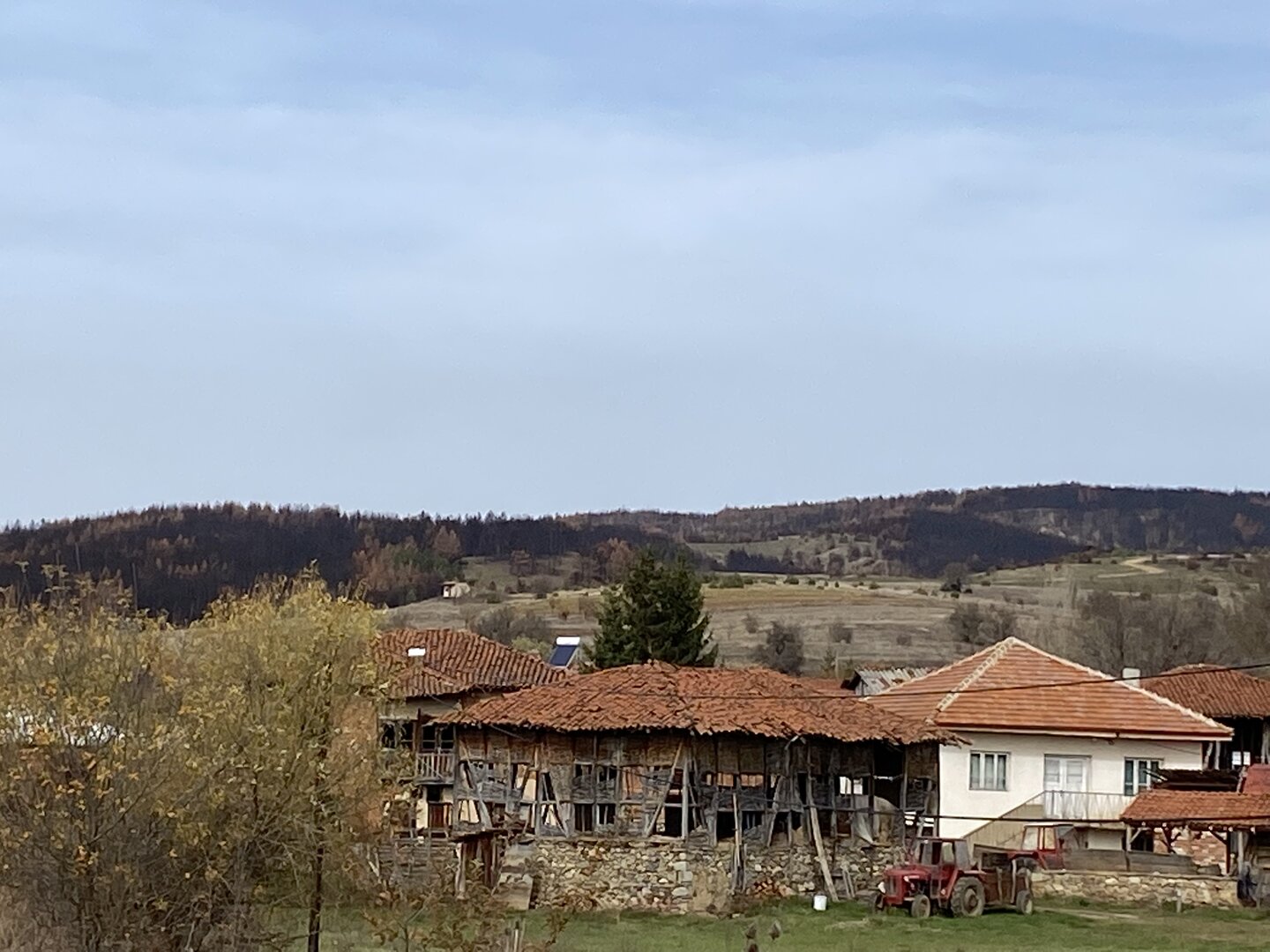Olga Stoimenovska and Tina Petrova are friends. They are also both active members of Agro Vinka, a local NGO based in Vinica in the Bregalnica region of North Macedonia. With some 200 members, Agro Vinka campaigns for the education, rights and economic empowerment of rural women. Perhaps a little less obviously, it also campaigns to halt the burning of paddy stubble, which is the straw left in the ground after the rice harvest.
Olga is the President of Agro Vinka, and her interests typically lie in handicrafts, especially weaving; she is proud to demonstrate the looms on which she weaves traditional cloth and tries to teach younger women similar skills. Unfortunately, few young women are interested. In fact, few remain in rural areas – given the limited local employment and recreational opportunities, the youth of Bregalnica are leaving for cities or to go to other countries. This has created a shortage of labor for rural occupations, especially agriculture and livestock rearing.
An easy way for farmers to prepare their fields for the next crop, especially if labor is short, is to burn the stubble. This destroys pests and prepares a good seedbed; however, it also produces a lot of smoke and reduces soil fertility. The smoke is both immediately detrimental to human health and environmentally damaging, contributing to global warming. Sometimes the burning gets out of control, spreading to the forests that cover the hillsides. According to Tina, who is an agronomist, “We were facing the problem of stubble fires every day from December to April. The smoke was terrible. We could hardly breathe, and there were also some fatalities from fires that escaped.”

A small grant from the Nature Conservation Project
Agro Vinka had already received funding from the Nature Conservation Project (NCP) for promoting energy efficiency in a local kindergarten, so they were aware of the availability of small grants from the project for environmentally-friendly initiatives. A project of the Swiss Agency for Development and Cooperation, NCP supports the conservation of biodiversity and sustainable economic development in the Bregalnica region. It is implemented by the Macedonian company Farmahem, with technical support from Helvetas.
To begin, Agro Vinka requested project funds for a small trial investigating four options to replace stubble burning. Such an investigation had been identified as part of the Local Strategy for Climate Change, previously developed with USAID support. All the options tested required cutting the straw as close as possible to the ground. This was followed by treating it with urea for livestock feed, using it to manufacture briquets for heating, or chopping it into fine pieces and then either ploughing it back into the soil or using it as mulch.
All methods worked, but they all required machinery for close-to-the-ground harvesting that is not locally available. With livestock numbers declining, there was not much scope for the first solution, and briquet production required high additional investment. The last two were therefore considered the most promising.
Eleven different government agencies
The next step was to integrate action against stubble-burning into official procedures. Unfortunately, in North Macedonia, responsibility for stubble burning does not fall to one government agency; it turned out to be shared between eleven! The women therefore had to establish and coordinate a Working Group comprising a representative of the Ministry of Agriculture, Forests and Water Economy; the Ministry of Environment and Physical Planning; the Centre for Crisis Management; the Fire Brigade; the Direction for Protection and Rescue; the National Agricultural Extension Agency; the Agricultural Inspectorate; and the Public Enterprise for Water Distribution and Wastewater Treatment – as well as the four relevant municipalities. This might sound daunting, but with some NCP logistical support, they managed, and even created a groundswell of support through visiting ten villages and holding two large workshops. A study tour to Turkey in October 2020 provided Working Group participants with additional insights on the way that paddy stubble is managed in that country.
Finally, the Working Group produced a set of recommendations. One that was accepted by the Ministry of Agriculture, Forestry and Water Economy was to provide financial support for special harvesting equipment that would cut straw close enough to the ground to allow ploughing or mulching without any burn. In total, 25 farmers signed contracts for financial support, and the equipment was duly ordered, although delivery has been delayed by the COVID-19 pandemic. The important point, though, is that all the concerned agencies agreed to jointly “own” the recommended action.

Synergy with a SECO project on wastewater management
By happy coincidence, the Swiss Secretariat for Economic Cooperation (SECO) is supporting a wastewater treatment plant in Kochani in the Bregalnica area, and has adopted a process using paddy straw as part of the final stage in producing compost. There is thus a new local demand for straw – one that farmers in the immediate vicinity of the treatment plant are already fulfilling, and which could increase over time.
Reducing the risk of landscape fires
This year the summer in North Macedonia was extremely hot and dry. Several devastating forest fires took hold in the Bregalnica region, leaving behind only blackened tree skeletons on many hillsides. For Olga and Tina, these are clear evidence of the need to do whatever possible to reduce the risk of fires in the landscape – a risk that they point out is only increasing due to climate change.

